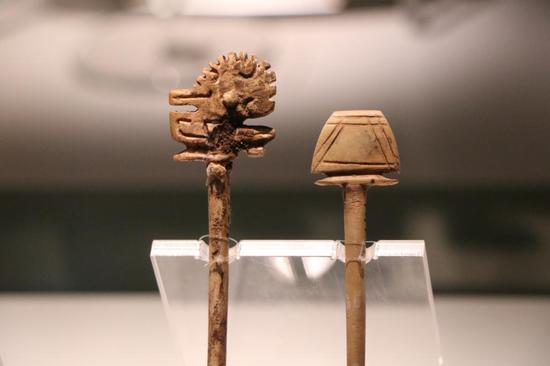(ECNS)--- More than 500 mu (33.33 hectares) of ancient phoebe bournei trees has been discovered at Lifang Village, Jiaotan Town, Fuliang County, in east China's Jiangxi Province.
Located 500 meters up on Youjia Mountain, the giant ancient trees stand tall and straight, with countless seedlings spread over the hillside. Among this community, the largest phoebe bournei has a trunk circumference of about 3.12 meters, a height of over 20 meters, and is more than 800 years old.
After discovering this large cluster of phoebe bournei trees, the town's forest management office invited experts from the School of Biology and Environmental Engineering at Jingdezhen University to conduct an on-site investigation and collect the trees' DNA samples. By DNA amplification, sequencing, splicing and comparison to a database, they confirmed their identity as phoebe bournei, a level-II nationally protected and endangered species in China.
Phoebe bournei, part of Lauraceae family, is a typical evergreen broadleaf species unique to China. It is commonly known as nanmu.
With its timber known for its resilience and aromatic properties, it is considered premium material for furniture, wood carving, and shipbuilding.
Due to environmental impacts and overlogging, phoebe bournei has become increasingly scarce and is listed as lower risk/near threatened in the IUCN Red List of Threatened Species as well as VU (vulnerable) in China Species Red List.
Fuliang County has a forest coverage rate of 82.21 percent. This is the first time that a large-scale community of phoebe bournei has been discovered in the county.
Since the implementation of a national forest chief scheme, the ecological environment has been improved, with the area now hosting grade-one national wild animals under protection including clouded leopards (neofelis nebulosa), as well as rare wild plants including ginkgo trees.
Currently, the local forestry department has implemented active protection measures for phoebe bournei. Efforts are underway to prevent insect infestations and diseases, while a special fund will be established to support the cultivation of this species.


















































 京公网安备 11010202009201号
京公网安备 11010202009201号